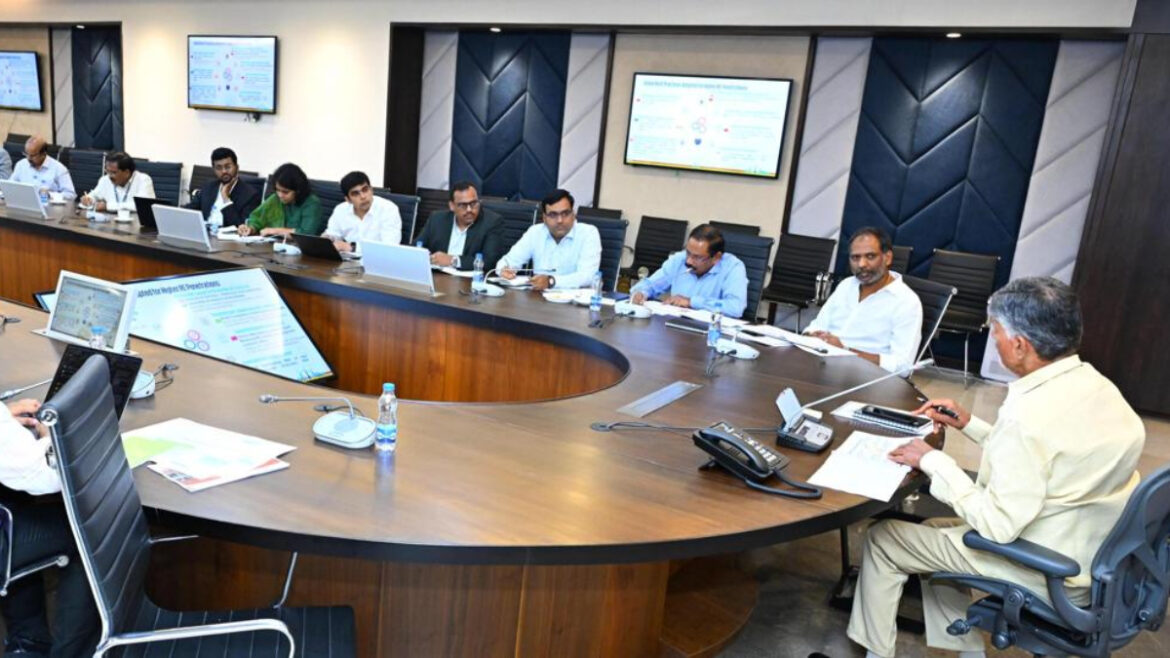Andhra Pradesh is set to introduce a new electricity policy under the banner of the “Integrated Clean Energy Policy.” The initiative aims to harness the full potential of solar, wind, and pumped storage energy available in the state, with the goal of achieving cost-effective power generation. Today, Chief Minister Chandrababu Naidu conducted a review meeting with officials to discuss the implementation and key considerations of the new policy.
During the meeting, CM Chandrababu emphasized that Andhra Pradesh has significant opportunities for non-conventional power generation. He stated that if these resources are fully utilized, the state could become the leading hub for renewable energy in India. Chandrababu noted that Andhra Pradesh was at the forefront of renewable energy production between 2014 and 2019, but faced setbacks due to the policies of the subsequent government. He stressed the importance of the new policy in advancing solar, wind, pumped storage, and bioenergy projects in the state.
The Chief Minister highlighted the need for the policy to focus on environmentally friendly, technologically advanced, and cost-effective power generation methods. He also discussed the potential for attracting large-scale investments through this policy, ensuring affordable electricity supply to consumers. Additionally, he urged a thorough study of the best practices in renewable energy from other states and countries to inform the policy’s development. The policy should be designed with projections for energy needs and production up to 2029 and 2047, he added.
The meeting also addressed strategies to promote electric vehicles in the state, with a target of establishing at least 500 EV charging stations. CM Chandrababu proposed introducing measures that would enable individuals and organizations to generate their own solar power and sell any surplus electricity, thereby simplifying the process. He also suggested focusing on the state’s quartz mineral resources for manufacturing solar panels and attracting related industries to Andhra Pradesh.






